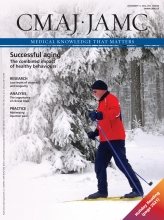Doctors who want to be happier in their work and personal lives should eat more ice cream and have more sex. Well, that might be oversimplifying things. Yet pursuing activities that give pleasure, in combination with those that provide engagement and meaning, are important for everyone, including doctors, in order to live a “full life” and avoid ill health, according to Dr. Tait Shanafelt, director of the Mayo Clinic Department of Medicine Program on Physician Well-Being in Rochester, Minnesota.
But are many doctors actually unhappy? After all, they are highly educated, rarely unemployed, well compensated and do work that most would consider meaningful. Someone from outside the field of medicine could be forgiven for thinking that doctors are likely among the happiest of professionals.
“The perception from the societal view is not matching reality,” Shanafelt said Oct. 25 in a keynote address to the International Conference on Physician Health in Montréal, Quebec.
In reality, many doctors are suffering, said Shanafelt. They routinely claim to be working too many hours, at too chaotic a pace, under too much time pressure. They too often self-diagnose their maladies, self-treat and self-prescribe. They have much higher rates of suicide than other university graduates and health care professionals.
Physicians in far-flung locations with scant access to support may be particularly at risk of mental distress. “I know personally from first-hand experience the immense stresses physicians in remote areas face,” CMA President Dr. Anna Reid said during a welcoming address to the gathering. “The isolation and burden of such responsibility can become overwhelming for some physicians.”
Not all of the factors that lead to physician distress are related to their work environment. Much can also be attributed to what Shanafelt called the “physician personality.” Doctors tend to be perfectionists and hard workers, to a fault. They often demand a lot of themselves. They can have difficulty relaxing or allocating time for themselves, and they tend to have an exaggerated sense of responsibility to patients.

It’s estimated that one-half of all doctors will experience burnout at some point in their careers.
Image courtesy of © 2012 Thinkstock
“Part of what makes us good at what we do also puts us at risk,” said Shanafelt, who studies the personal and organizational factors that might improve the health of physicians and enhance the quality of the care they provide.
The combined effect of the external and internal stressors affecting physicians is a high rate of burnout. In fact, nearly half of doctors will at some point in their careers experience this condition, which is characterized by the Maslach Burnout Inventory as having three classic signs: emotional exhaustion, a reduced sense of accomplishment and “depersonalization” (an excessively detached response to duties and a cynical attitude).
All doctors will exhibit some of these symptoms at times, “but when you begin to experience them to a certain severity and frequency, it can affect your performance on the job,” said Shanafelt.
One way that burnout is manifested is through an increase in medical errors, which is worrisome, Shanafelt said, adding that doctors are at much higher risk of depression after committing an error.
It can set off a deadly cycle of error and distress, he noted. “This is a two-way street.”
Tackling the problem of physician burnout is imperative, suggested Dr. Jeremy Lazarus, president of the American Medical Association. “We can’t just tell doctors to grin and bear it. We need to better understand what is actually happening,” he told the gathering.
Both physicians and their employers have roles to play. Leading a more balanced life, including the pursuit of a blend of pleasurable, engaging and meaningful activities, appeared to be the primary recommendation to physicians. They were also told to take time to self-reflect, to identify the elements of their specialties that are particularly stressful and to be mindful of the importance of wellness.
All too often, Shanafelt noted, doctors view personal wellness as something they can put off until retirement — even if it’s decades away.
Health care organizations, meanwhile, need to recognize that there are consequences to ignoring physician burnout and that they must put policies in place, with respect to workload, autonomy and work–life integration, that help physicians achieve a proper balance, he added.
The solution isn’t to simply try to preselect physicians who appear less prone to burnout, Shanafelt added. They’re the ones who often are least committed to their work; “You would weed out the very people you would want to be your colleagues.”











